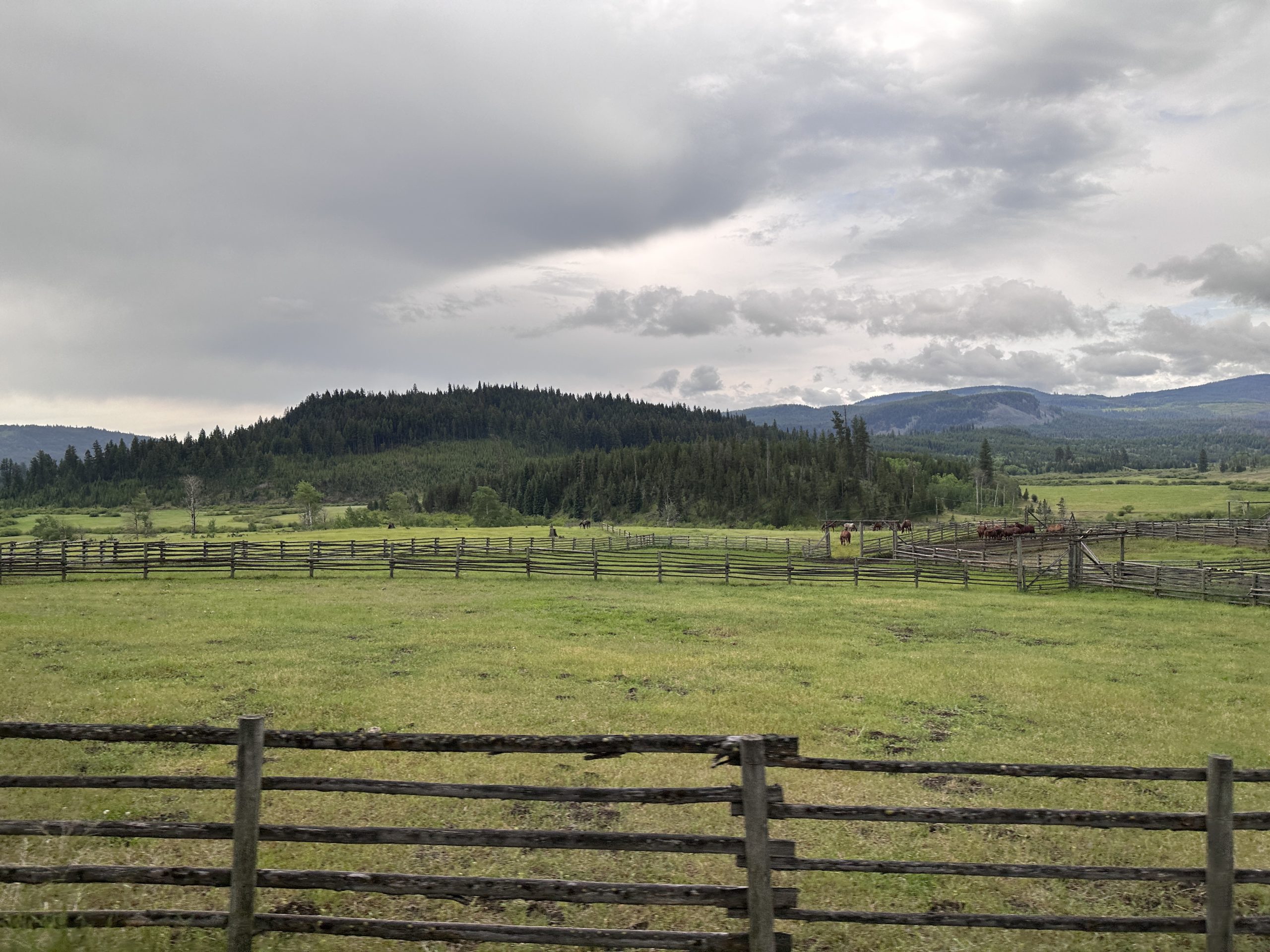By Jane Craigie
As I write this, I’m with 200 other journalists in Canada for the International Federation of Agricultural Journalists’ Congress. The country is vast, second in size, by land area, only to Russia. Agriculture is important to the nation; canola (oilseed rape) is the primary output, valued at Canadian $9,091 million, and a close second, is beef and calves with a value of $8,800 million.
During the trip we visited John and Kate Anderson who run 230 Black Angus breeding cows and 200 yearlings on their cattle ranch – Kane Lake Ranch – near Merritt in British Columbia. The property spans just over 7,000 acres, of which they own just over 300 acres, and, like most other ranches, much of the rest is Crown range, land owned by the British Monarchy, which Canadian ranchers own rights to use.
The Anderson’s primary focus is to rear high quality beef animals and manage the ranch’s picturesque landscape, lakes and biodiversity, having won awards for their environmental stewardship.
Like Scotland’s beef producers rearing cattle on marginal land, John sees huge value in producing a high-quality protein source from what he describes as very low value grassland.
“There’s less than 2% of the of the land base in British Columbia that is grassland. The rest of region is forested land, like we have, some of it suitable for cattle, but a lot of it not useable for anything but wildlife and growing trees. So, I always tell people, we are taking the fringe area of the province, and we are producing a product that is high value, high protein that has a high nutrient density.
“We also caretake between 6,000-7,000 acres of publicly owned land, so we look after the fences, we look after the cattle on it and steward the landscape at very little cost to society.”
The other rancher we met was Dave Zehnder, who runs 180-cows on 3,000 acres of Crown land, with his brothers a national park called the Kootenay National Park. Like the Andersons, he has an intense focus on the environment – believing that it is part of a sustainable future for the land and their ranch. Dave has worked with local farmers to set up local funding for environmental management of the land close to their waterways and woodland thinning to help protect the land and local communities from the rise in Canada’s devastating wildfires.
In 2008, the Zehnder family created a business plan after BSE severely impacted their beef prices. The event hit the farm hard, but they used it as an opportunity to rethink their business strategy. They saw an opportunity in the local food movement to build a brand based on sustainable ranching practices.
What started with an Environmental Farm Plan (EFP) grew into a province-wide initiative led by Dave Zehnder. Using funds from the EFP and the Columbia Basin Trust, the Zehnder ranch fenced off 15 acres of riparian habitat along a lake on their property. Dave felt that other farmers and ranchers could also benefit from such projects and his work became a pilot to test the idea of funding farmers and ranchers to protect key ecosystem services. Many of the local farmers are now involved and the programme – Farmland Advantage – which is being considered and replicated in other provinces.
What struck me most about visiting these ranchers was that, despite the severe limitations of the land’s production potential, both ranchers have embraced the landscape – very much as Scotland’s beef farmers do. The ranchers use the land to produce the best beef that they can, building a strong sustainability story around it and developing management practices that recognise what society needs – land management that cleans water, encourages biodiversity and keeps communities safe from flood and fire.

